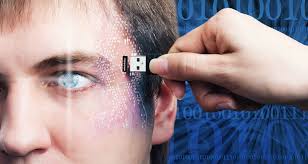How transhumanism could change the world?
Human technology is an incredible phenomenon. It is something that grows exponentially, for every advance we make, our next advances are more varied and easier to attain. Our inventions are all around us, every day, making every part of life easier. Some people say that’s a terrible thing. I’m a futurist and I think it’s incredible.
Here’s a concept that’s even more fascinating than human technology: human technology that is putting the technology into humans.
Transhumanism, as it’s known, is the process of augmenting ourselves with advanced technology; the point where the technology isn’t merely an extension of ourselves like your smartphone probably is but a part of ourselves.
The history of transhumanism:
In the 19th century, Russian philosopher Fyodorov wrote about the potential of science to one day enable us to become immortal or raise each other from the dead.
It was Julian Huxley brother of the famous science fiction writer Aldous. who first used the term transhuman, defining it as “man remaining man, but transcending himself.
In later years, transhumanism is brought into the discourse of A.I. and the Singularity by important figures in those fields, Marvin Minsky and Ray Kurzweil prime among them. Kurzweil, who outside of his synthesizers is most famous for his thoughts on the Singularity, holds to the view that transhumanism is an important stepping stone toward human immortality.
Transhumanism today:
there are people, who are living as transhumans today, and their quality of life (and in some cases, their life, period) can be attributed to their transhuman features.
When you take a step back and look at how good these technologies do for people, people you may know that harsh glare fades away quickly. For most people, the families of the deaf who can now hear thanks to the cochlear implant or those with heart conditions who are alive because of their pacemaker, that these devices even exist is reason for gratitude and optimism.
What to expect in the future of Transhumanism?:
The cochlear implant is an amazing thing, but it’s got nothing on the speculation and predictions for the future.
According to futurist George Dvorsky, experts believe that genetic diseases can be eliminated by 2030. But that’s not all our rapid advances in genetics can help us achieve. Our intelligence and memory, our health and strength, could all be improved in the next few decades though the costs associated with having yourself modified will likely remain sky-high for decades.
imagine a world where you can have your metabolism adjusted to suit your line of work, instead of doing crazy things to manipulate your body’s metabolic regulation.
We may see implants that return vision to the blind. There are predictions of high resolution implants that will allow humans to see things at great distances in great detail.
Forgoing the idea of implants, there’s the possibility of changing sensory organs themselves for instance, adapting the human eye to take on some of the characteristics of the eagle eye, allowing us improved vision without the need for electronic devices in our skull.
As an extension of our eyes rather than an improvement, heads-up displays are a real possibility, and they’ll allow us to perform computing tasks in our head, with our eyes as the monitor. There are two methods that scientists speculate such technology would employ: retinal display, where the light is projected directly onto the retina, and synaptic interface, which doesn’t use light to create an image but rather transmits visual information directly to the brain.
This will no doubt inspire many run-of-the-mill applications such as checking your email in your head and quickly looking up words in the dictionary during a conversation so you don’t look like an idiot.
Humans are vain, and of course cosmetic applications haven’t been ignored. Anti-aging technology could combat free radicals and oxidation through chemical/hormonal control or nanotechnology. We could control the pigments of our hair follicles, the hormones that control male baldness, and even generate tattoos that can be painlessly created, modified, animated, and easily removed.
What if a train crushes you? That heart system would’ve been a waste of money it’s not going to help you in that scenario. So how about we forget about iCloud and backup our DNA and our brain contents, ready to be restored in a new body at the drop of a.. well, train?
We can adapt our bodies to deal with extreme environments that we’re usually unable to explore without restrictive suits or remotely through robots for instance by using the anti-freeze proteins found in the Arctic Flounder in our own bodies. It’s a technique that has already shown success in preserving citrus plants through harsh winters.
There’s a lot of talk about being unable to ever leave our own solar system because, even with the technology to create a ship that will get us that far, last that long, and not run out of fuel, we’ll die because even nearby trips take tens or hundreds of thousands of years.





Hi! I am a robot. I just upvoted you! I found similar content that readers might be interested in:
https://thenextweb.com/insider/2011/06/12/humanity-plus-how-transhumanism-could-change-the-human-race/